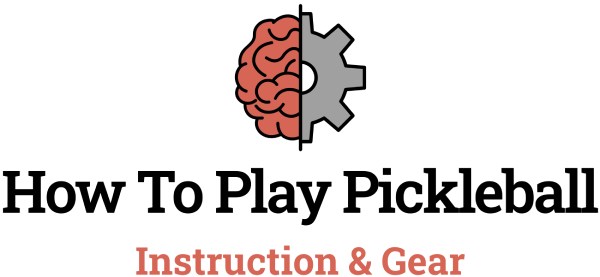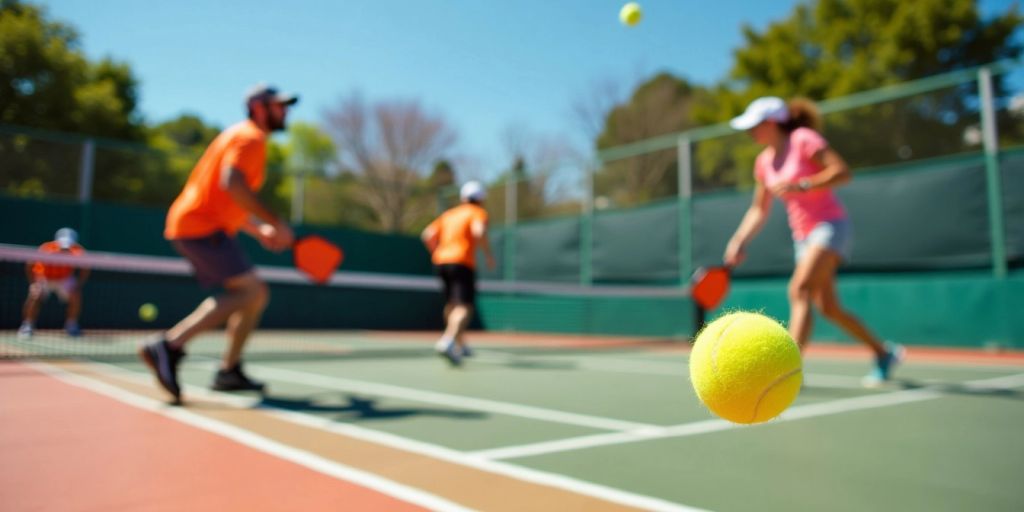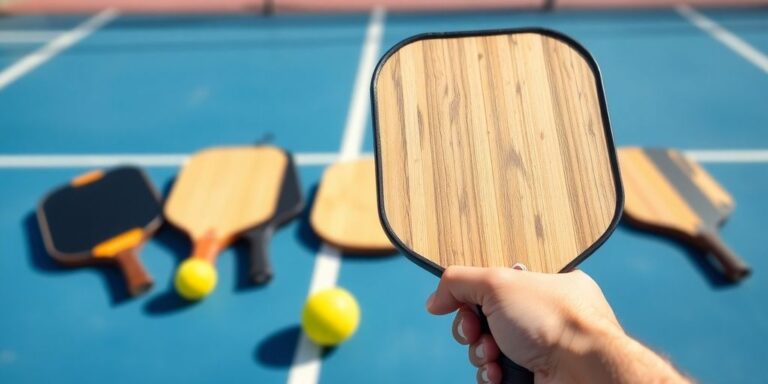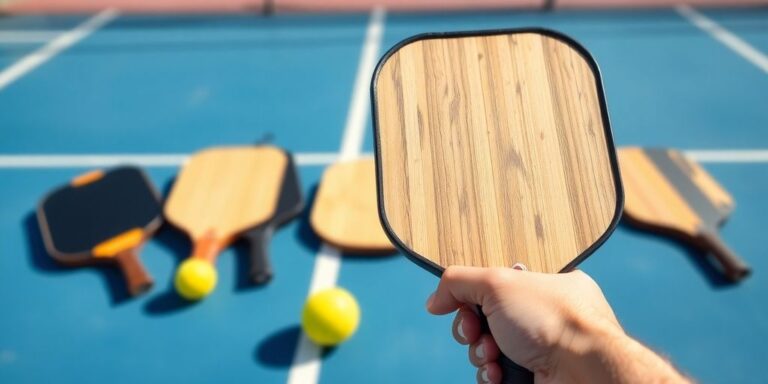Welcome to the ultimate guide on pickleball strategy for beginners!
This article aims to help beginners enhance their skills on the court. Whether you’re brand new to the game or looking to improve your tactics, mastering key strategies is essential for success.
From understanding court positioning to developing a strong mental game, these strategies will set you on the path to dominating pickleball. Let’s dive into the essential tactics you need to know!
Key Takeaways
- Knowing where to stand on the court helps you hit easier shots.
- Practicing different serves will give you a more manageable third shot.
- Staying mentally strong is key for handling pressure during matches.
- Improving your footwork allows you to be more consistent.
- Good communication with your partner leads to better teamwork and success.
Mastering Court Positioning for Easier Shots
Offensive Positioning Tactics
To excel in pickleball, offensive positioning is key. Stand close to the kitchen line to lean over the kitchen line for high balls. When you attack high balls, keep your paddle up and ready for the next ball. Here are some tips to enhance your offensive pressure:
- Take away your opponents space by taking balls out of the air at the kitchen line.
- Keep your paddle out front, the ball is usually coming back.
- Be patient, the less you attack the more effective it is.
Defensive Positioning Strategies
When on defense, try to move back and keep your paddle down low. Here are some strategies to improve your defense:
- Keep your center of gravity low for better movement.
- Move forward toward kitchen if you hit it low, move back if you hit it high.
- Miss high, not in the net. Give yourself a chance
Effective Serving Techniques to Gain an Edge

Types of Serves to Master
To excel in pickleball, mastering various serves is essential. Here are some key serves to practice:
- Power Serve: A fast serve that can catch your opponent off guard.
- Spin Serve: Adds unpredictability, making it harder to return.
- Soft Serve: Focuses on placement rather than speed.
- High Lob Serve: Forces your opponent to hit from an awkward position.
Targeting Opponent Weaknesses
Identifying and exploiting your opponent’s weak spots can give you a significant advantage. Here’s how to do it:
- Observe their footwork and shot preferences.
- Aim for their backhand if it’s weaker.
- Mix up your serves to keep them guessing.
Practicing Under Pressure
Practicing your serves under pressure can help you stay calm during games. Here are some tips:
- Set up a practice match with friends.
- Use a timer to simulate match conditions.
- Focus on consistency rather than power.
A strong serve can set the tone for the entire match. Keep practicing, and you’ll see improvement!
Developing a Strong Mental Game
In pickleball, having a strong mental game is just as important as mastering physical techniques. Mental toughness helps players stay focused, make smarter decisions, and bounce back from setbacks. Here are some tips to help you build a strong mental game:
Building Confidence on the Court
- Stay present: Focus on the current point and avoid dwelling on past mistakes.
- Use positive self-talk: Encourage yourself with uplifting phrases and celebrate small victories.
- Develop a pre-serve routine: Take deep breaths, visualize a successful serve, and repeat a positive affirmation.
Remember, every player has ups and downs. Embrace the journey and learn from each game!
Staying Focused Under Pressure
- Create a mental routine to keep your mind sharp.
- Practice deep breathing to manage stress.
- Focus on a specific point on the court to maintain concentration.
Using Visualization Techniques
- Picture yourself executing successful shots.
- Visualize overcoming challenging situations on the court.
- Incorporate positive affirmations to boost your confidence.
By developing your mental game, you’ll find yourself more resilient and ready to tackle any challenge on the court. Remember, the pickleball mental game mastery is crucial for success!
Exploiting Opponent Weaknesses
Every player has weaknesses. Here’s how to spot and exploit them:
Observing Footwork and Shot Preferences
- Watch their footwork: If they struggle to move quickly, aim for shots that require them to sprint.
- Identify shot preferences: If they favor backhands, target their forehand side.
- Look for patterns: If they consistently miss certain shots, focus on that area to gain points.
Targeting Weak Spots
- Hit shots to the corners: This forces your opponent to cover more ground.
- Change up your shot speed: Mixing fast and slow shots can throw them off balance.
- Use lobs wisely: A well-placed lob can push your opponent back, creating space for your next shot.
Adapting Strategies Mid-Game
- Stay aware: The best players adapt their strategies based on their opponents.
- Adjust your game plan: Keep them guessing by changing your tactics.
- Communicate with your partner: In doubles, teamwork can amplify your offensive strategy.
Remember, the best players adapt their strategies based on their opponents. Stay aware and adjust your game plan to keep them guessing!
Communication and Teamwork in Doubles Play
In doubles pickleball, communication and teamwork are key to winning. Here are some essential strategies to enhance your play:
Coordinating Movements
- Stay aware of your partner’s position on the court.
- Shift quickly to cover gaps when your partner moves.
- Practice drills that focus on teamwork and positioning.
Anticipating Partner’s Moves
- Always discuss your game plan before the match.
- Use hand signals to indicate plays and avoid confusion.
- Encourage each other to maintain a positive vibe throughout the game.
Encouraging Each Other
- A supportive attitude can make the game more enjoyable.
- Call out shots to let your partner know who will take the ball.
- Trust each other to make the right calls during play.
Remember, a successful doubles team relies on strong communication, understanding each other’s strengths, and building trust. By focusing on these elements, you can dominate the court together!
Common Mistakes to Avoid on the Pickleball Court
Playing pickleball can be a lot of fun, but there are some common mistakes that can hold you back. Here are a few to watch out for:
Playing Too Defensively
- Staying back too much can give your opponents an advantage. Instead, try to take control of the net.
- Avoid being afraid to attack; this can lead to missed opportunities.
- Remember, being too defensive often leads to giving away points.
Failing to Communicate
- In doubles, communication is key. Make sure to call out shots and let your partner know your intentions.
- Lack of communication can lead to confusion and missed chances to score.
- Always encourage your partner to speak up as well.
Neglecting to Warm Up
- Warming up is essential to prevent injuries. Take time to stretch and get your body ready.
- A good warm-up can improve your performance and help you play better.
- Skipping this step can lead to muscle strains and fatigue during the game.
Avoiding these mistakes can greatly improve your game. Focus on being proactive, communicating clearly, and warming up properly to enhance your performance on the court!
Intermediate and Advanced Pickleball Strategies

Mastering the Soft Game
To excel in pickleball, mastering the soft game is crucial. This involves developing your skills in dinking and drop shots. These techniques help keep your opponents off balance and create opportunities for winning points. Here are some key points to remember:
- Focus on consistency and precision.
- Use soft shots to control the pace of the game.
- Aim to force your opponents into defensive positions.
Placement Over Power
Instead of just hitting the ball hard, placement over power is essential. Direct your shots to specific areas of the court, such as:
- The sidelines to stretch your opponent.
- Their weak spots to exploit gaps in their defense.
- Areas that force them to move, making it harder for them to return the shot.
Transitioning from Defense to Offense
Recognizing when to switch from defense to offense can change the game. Here’s how to do it effectively:
- Stay alert to openings in your opponent’s defense.
- Be ready to capitalize on mistakes or weak returns.
- Communicate with your partner to ensure a smooth transition.
Developing these strategies can significantly enhance your gameplay and help you become a more competitive player on the court. Remember, master the basics before advancing to intermediate techniques!
Ready to elevate your pickleball game? Discover essential strategies that can take your skills to the next level. Don’t miss out on exclusive tips and insights—visit Nunnery’s Pickleball Lab today!
Conclusion
In conclusion, mastering pickleball is all about using smart strategies and practicing regularly. Remember, every time you step onto the court, you have a chance to learn and improve. Focus on your positioning, serve wisely, and keep your opponents on their toes with varied shots. If you’re playing doubles, good communication with your partner is key. With these tips in mind, you’re well on your way to becoming a pickleball champion. Enjoy the game, stay positive, and keep pushing yourself to grow!
Frequently Asked Questions
What are the basic rules of pickleball?
Knowing the basic rules is important for playing well. This includes understanding how to serve, score points, and the layout of the court.
How can I improve my serve?
To get better at serving, focus on combining power, accuracy, and smart strategies. Practice different serving techniques to enhance your game.
What should I do if my opponent has a strong smash?
If your opponent can smash the ball hard, adjust your position and be ready to defend. Anticipating their moves is key to staying safe.
How can I stay mentally focused during a match?
Staying focused means practicing mindfulness and keeping a positive attitude. Take deep breaths and remind yourself to concentrate on each point.
What’s the best way to communicate with my partner in doubles?
Good communication with your partner is essential. Talk about strategies, encourage each other, and make sure to cover the court together.
How can I avoid common mistakes in pickleball?
To avoid mistakes, remember to play actively instead of defensively, communicate clearly with your partner, and always warm up before games.




